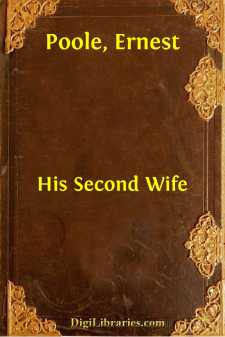Categories
- Antiques & Collectibles 13
- Architecture 36
- Art 48
- Bibles 22
- Biography & Autobiography 813
- Body, Mind & Spirit 142
- Business & Economics 28
- Children's Books 17
- Children's Fiction 14
- Computers 4
- Cooking 94
- Crafts & Hobbies 4
- Drama 346
- Education 46
- Family & Relationships 57
- Fiction 11829
- Games 19
- Gardening 17
- Health & Fitness 34
- History 1377
- House & Home 1
- Humor 147
- Juvenile Fiction 1873
- Juvenile Nonfiction 202
- Language Arts & Disciplines 88
- Law 16
- Literary Collections 686
- Literary Criticism 179
- Mathematics 13
- Medical 41
- Music 40
- Nature 179
- Non-Classifiable 1768
- Performing Arts 7
- Periodicals 1453
- Philosophy 64
- Photography 2
- Poetry 896
- Political Science 203
- Psychology 42
- Reference 154
- Religion 513
- Science 126
- Self-Help 84
- Social Science 81
- Sports & Recreation 34
- Study Aids 3
- Technology & Engineering 59
- Transportation 23
- Travel 463
- True Crime 29
Ernest Poole
Ernest Poole was an American novelist and journalist, best known for his 1917 Pulitzer Prize-winning novel "His Family." Born in 1880, Poole was also a prominent figure in early 20th-century social reform movements and a supporter of labor rights. His novel "The Harbor" (1915) reflected his concerns about industrialization and the lives of working-class Americans. Poole's works were deeply influenced by his experiences as a war correspondent and his observations of social and political change during his time.
Author's Books:
Sort by:
by:
Ernest Poole
CHAPTER I "You chump," I thought contemptuously. I was seven years old at the time, and the gentleman to whom I referred was Henry Ward Beecher. What it was that aroused my contempt for the man will be more fully understood if I tell first of the grudge that I bore him. I was sitting in my mother's pew in the old church in Brooklyn. I was altogether too small for the pew, it was much too...
more...
by:
Ernest Poole
CHAPTER I On a train speeding toward New York, in one of the parlour cars two young women sat facing each other, talking and smiling, deeply absorbed. They took little apparent notice of any one else in the car, but most of the people near them kept throwing curious glances their way. These glances differed vastly, as did the thoughts behind them. A tall, genial Westerner, who looked as though he had...
more...
by:
Ernest Poole
CHAPTER I He was thinking of the town he had known. Not of old New York—he had heard of that from old, old men when he himself had still been young and had smiled at their garrulity. He was thinking of a young New York, the mighty throbbing city to which he had come long ago as a lad from the New Hampshire mountains. A place of turbulent thoroughfares, of shouting drivers, hurrying crowds, the crack...
more...




